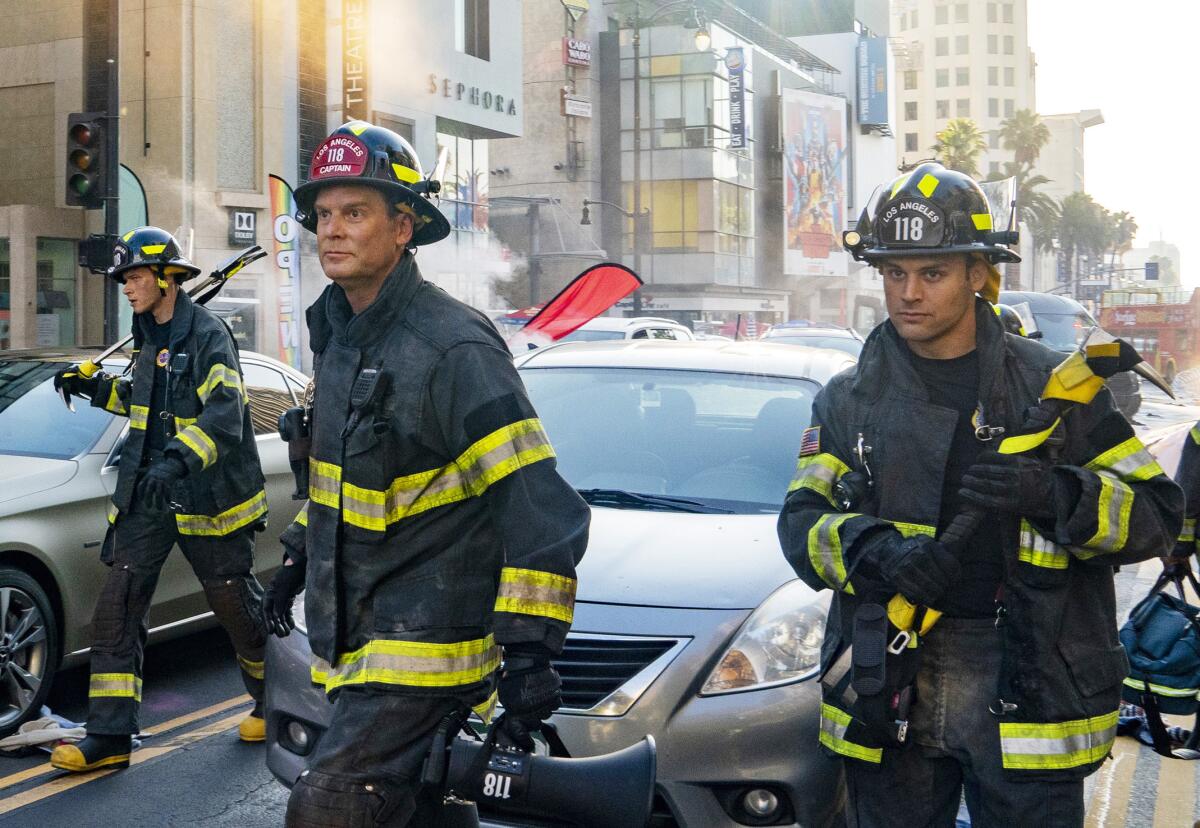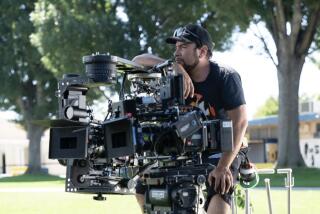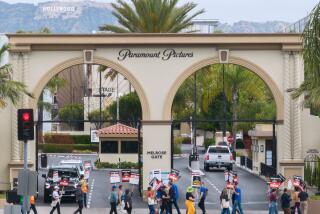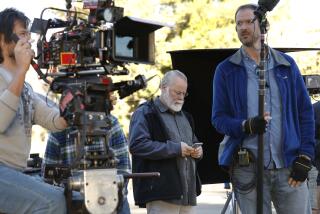Omicron hinders Hollywood’s return to business

Tim Hillman was preparing to start work as location manager for the Fox Network show “9-1-1” in Los Angeles on Monday, but Omicron had other plans.
To avoid the risk of an expensive shutdown if crew returning from the holidays tested positive for COVID-19 mid-shoot, the Disney-produced procedural postponed its restart to Jan. 10, he said.
“This week we were supposed to be back to work on our show.We’ve been on Christmas hiatus, and they extended it by a week,” Hillman said.
Shutting down a show once filming has begun can be very costly for producers.
“You’re looking at a minimum of $150,000 to $200,000 per day to have a motion picture company on the street shooting television or film,” Hillman added. “If you start up and 30 or 40 of the crew happen to test positive because they’ve all been off gallivanting during the Christmas hiatus, then you suddenly don’t have enough crew ... and you’ve got to shut down again and you just spent all that money on the startup.”
“9-1-1” is one of a growing number of productions that have either had their productions stopped by positive COVID-19 cases or decided to hold off their return to work after the traditional two-week holiday break.
Disney has delayed until Jan. 10 all of the productions that were due to return to filming this week, said a person close to the studio who was not authorized to comment publicly.
The long-running CBS crime series “NCIS,” which had resumed production this week, paused filming because of a positive COVID-19 test, said a person close to the studio. CBS Studios is deciding whether to halt other productions on a show-by-show basis, the person said.
Despite a rebound in film and TV production after the health crisis subsided, with activity exceeding prepandemic levels, the recent emergence of the highly contagious variant now threatens output. That will add to the pressure on studios and streaming companies battling to deliver the hottest new shows and movies to maintain viewers and subscribers in an increasingly competitive market fueled by surging demand for streaming content.
“We’re not seeing the typical level of rebound of production that we would see,” FilmLA President Paul Audley told The Times. “Typically, we see almost a vertical line if you look at a chart of permits coming back and we are not seeing that same vertical line. It’s more like like a 45-degree line on a chart. We’re hearing from people who are asking to cancel or postpone their permits right now.”
Film LA, the nonprofit group that handles film permits for the region, estimated about a dozen projects that had planned to shoot on location had canceled or postponed pulling their film permits.
The region was already showing signs of a slowdown before the expected return to work.
FilmLA recorded 95 shoot days last week (Dec. 27-Jan.2),
down from 130 shoot days during roughly the same period a year ago and 98 shoot days in early 2020.
This time last year, county healthy officials and unions strongly encouraged productions to hold off returning to work in January until the end of the month to ease the burden on the health system. So far there is no sign that such orders will return, Audley said.
“They [county officials] feel fairly secure with the film industry right now,” he said.
The question Audley and others can’t yet answer is how long the delays may last.
Live shows have been impacted in recent days as stars including Whoopi Goldberg, Jimmy Fallon and Seth Meyers were among those testing positive for COVID-19 over the holiday period.
Some productions such as “The Bold and the Beautiful” had already planned not to return until Jan 11. Others were interrupted, like Netflix’s “The Crown,” which had to shut down its fifth season a day early last month because of positive COVID-19 cases among the British production.
California COVID-19 cases reached record territory after the holidays, with officials warning that the next few weeks are crucial in the fight against the highly infectious Omicron variant.
L.A.-based Donna Gross, a location scout for commercials, has had calls for work and hasn’t had any projects canceled yet, she said. Commercials tend to be more nimble, shooting for shorter periods with smaller crews. But Gross, who recently scouted an ad for T-Mobile, is already thinking about the prospect of standing in long lines at test centers to be cleared to work on sets.
“I’ve probably been tested a hundred times in the last year,” Gross said. “I did notice that the lab that I normally go to in my neighborhood has lines around the block and I’m like, ‘Oh boy if this is not over by mid-January, am I going to have to stand on that line for an hour to work?’ ”
That’s less of an issue for larger film and TV productions, which typically will test on site during filming, with some crews needing to be tested at least three times a week to meet with industry safety protocols.
Union officials and an alliance of film and television producers have yet to announce any extension or amendment to their longstanding return-to-work agreement, which sets out pay and other conditions for crews working during the pandemic. They have considered increasing testing frequency on sets as part of the agreement due to expire on Jan. 15, although no agreement has yet been announced.
The deal is likely to be extended to mid-February without any major changes for now, said a person familiar with the matter who was not authorized to speak publicly. One issue to be negotiated is a possible requirement that vaccinated individuals get booster shots.
For now, some shows are voluntarily increasing testing above what is mandated, the person said.
More to Read
Inside the business of entertainment
The Wide Shot brings you news, analysis and insights on everything from streaming wars to production — and what it all means for the future.
You may occasionally receive promotional content from the Los Angeles Times.









